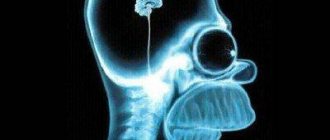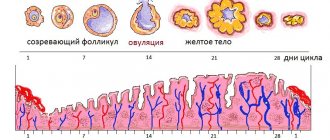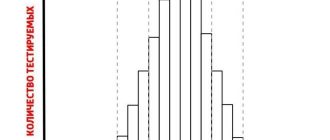Despite the enormous advances in scientific development over the last hundred years, we are still very far from a complete understanding of nature. Not only have scientists failed to find the holy grail of physics, combining the very big (general relativity) with the very small (quantum mechanics), they still don't know what most of the universe is made of. The “Theory of Everything” continues to elude us, as do other unsolved mysteries, such as how consciousness emerges from matter.
Will science ever be able to answer all these questions? The human brain is the product of blind and unguided evolution. It was created to solve practical problems related to survival and reproduction, and not to unravel the mysteries of the universe. This view has led some philosophers to accept the curious pessimistic theory that there are things we can never understand. Therefore, one day science will reach a hard limit—or perhaps it has already.
Some questions are doomed to remain forever in a category that American linguist and philosopher Noam Chomsky called “mysteries.” But is this argument correct? Imagine that the human brain was not programmed to understand its origins, but somehow we managed to do so. Perhaps pessimists are missing something?
Arguments for Mysterianism
Proponents of a philosophical movement called “mystery” (from the English “mystery” - secret) attach primary importance to biological arguments and analogies. In his seminal work, The Modularity of Consciousness, philosopher Jerry Fodor stated that “there are thoughts for which we are not prepared.”
Similarly, philosopher Colin McGinn argues that our minds experience “cognitive closure” regarding some problems. Just as cats or dogs will never understand prime numbers, the human brain can be closed to comprehending certain “miracles” that are simply beyond the reach of our minds.
If McGinn is right and our brains are not capable of solving certain problems, there is no point in even trying to do so, since we will be constantly in a state of delusion. The philosopher is convinced that this is the ideal natural solution to the mind-body problem, but the human brain will never find it.
Incomprehensible theories
Proponents of mystery tend to frame the problem of cognitive boundaries in rigid, black-and-white terms—either we can solve the problem, or it will forever remain a mystery to us. According to them, at some point human curiosity will suddenly hit a metaphorical brick wall, after which we will be forever in a state of incomprehension.
However, in mysterianism there is another possibility - a slowly decreasing effect. In this case, reaching the limit of knowledge may not feel like hitting a wall, but like plunging into a quagmire. We will slow down even as we try harder, but there is no discrete point beyond which further development will be impossible.
What if the correct answer to a question is found, but remains incomprehensible? Adherents of Mysterianism often conflate these two possibilities. For example, this can be said about the theory of quantum mechanics in the words of physicist Richard Feynmann:
“I think I can say with confidence that no one understands quantum mechanics.”
Are people “cognitively closed” to the Kantian world? According to quantum mechanics, particles can be in two places at the same time or randomly appear from empty space. Although it is extremely difficult to understand, quantum theory produces incredibly accurate predictions. The phenomenon of “quantum entanglement” has been confirmed in several experiments, and scientists are now creating applications based on this theory.
Proponents of Mysterianism tend to forget how incomprehensible some theories seemed when they arose. Our consciousness was not ready to accept that the Earth is round and rotates or that microscopic organisms are capable of killing a person - and this gives reason for optimism.
The struggle between nature and reason
The existence of highly developed science, technology, and economics in our lives does not mean that we have reached the highest level of intelligence. They only explain the world created thanks to the human mind and nature. Our home planet has interested us since ancient times. And it is this interest and the desire to satisfy it that shows us as beings with intelligence.
The brain is our tool that helps us achieve what we want. And it is also the link between natural instincts and true intelligence. He is able to capture the subtlest vibrations of the immaterial plane of existence, to become an instrument of the spirit, as the philosopher Vladimir Solovyov said.
Expanding the boundaries of the mind
But is our little brain capable of answering all the questions and understanding all the problems? It depends on whether we mean a bare, unaided brain or the additional use of technology. With one brain we cannot do many things. However, Homo sapiens knows how to make tools, which include cognitive ones.
For example, without the use of instruments, our senses will not be able to detect ultraviolet light, ultrasonic waves, x-rays or gravitational waves. However, with the help of appropriate technologies this becomes possible. Devices such as X-ray film and Geiger counters expand the capabilities of our minds by “translating” physical processes into a format that our senses can perceive.
Thus, in terms of sensory perception, we are “closed” to ultraviolet light, but only until we resort to the help of additional equipment.
Likewise, we use physical objects (such as paper or pencil) to enhance our brain's ability to remember. According to British philosopher Andy Clark, our brains literally extend beyond our heads in the form of laptops, computers, maps and file cabinets.
Another fantastic mind-expanding technology is mathematics, which allows us to imagine patterns that the brain alone could not even think of. For example, no scientist could imagine the possibility of creating a mental representation of all the complex interpenetrating processes that shape our climate system. This is why mathematical models and computers were created.
Alternative view
6.13. MIND, INTELLIGENCE AND REASON. THE ESSENCE, MEANING AND ESSENCE OF THIS
The concept of what mind, intellect and intelligence are is different for all people. Many agree that these are all almost the same, but slightly and slightly different in detail.
—
The author suggests that these are completely different concepts in their essence and meaning. Firstly, all living and non-living forms of life have a mind. Intelligence presupposes a more developed form of life. Although most types of life forms have some rudiments of intelligence. But not everyone has a mind, even humans, so a person cannot be called Homo Sapiens - Homo sapiens! The fact is that humanity at the moment is a “Primitive Mammal Creature”! Possessing only the rudiments of intelligence. Please note: it has only the initial rudiments of intelligence, but not yet intelligence itself! This is the difference between an apple seed and the fruit-bearing tree itself! Did you catch the difference? A very small part of people can, in principle, have at least some kind of intelligence; at the moment this number (according to rough estimates of its reasonable, rational and logical activity, which is demonstrated by humanity itself and its leading part) does not exceed 100 people, somewhere around 50— 70 people, but no more. And in all visible reality there are not even 30 reasonable people. They (this number) have not yet reached critical mass. This may take several thousand years, tens of thousands of years or hundreds of thousands of years, who knows, or maybe millions. The majority of humanity still has the rudiments (ersatz) of reason. To be more precise, this is just a pseudo-mind. In the part of this book that talks about the distribution of reason among professions and layers of human society, what is meant is the beginnings of reason (that is, ersatz reason, pseudo-reason). This matter is especially unimportant for those who always and in everything are guided in their lives only by emotions and feelings, and this is not objective, but subjective, illogical and most often not reasonable! Try to evaluate the words, deeds and actions of the so-called creative intelligentsia from the point of view of rationality and reason! Have you tried it? And How?? If my thoughts seem offensive to you, then look around you, and at yourself, at your actions, thoughts, actions, words! Try and evaluate all this soberly and honestly. Are they all really so reasonable (meaning your words, deeds and actions?), logical and correct? Are you absolutely sure about this? At least be honest with yourself sometimes! So how is it? Yeah!
First, I will give the concepts that exist now in the modern world.
6.12.1. Mind: The mind is a manifestation of reason; it brings order to chaos. Reason creates the possibility of new orders, it is a synthesis of intelligence, creativity, morality and responsibility. The Mind tells a person how to become happy; for the Mind, truth is higher than happiness. The mind is connected to the heart, this connection gives birth to Wisdom. Homo Sapiens - Homo sapiens!
Carl Jung argued that a person, already at birth, has a differentiated and highly developed brain that stores in memory the experiences of countless generations of people who lived before him (the collective unconscious is a deep-rooted spiritual material that gives humanity the desire for spiritual and physical perfection).
Thus, Mind and Intelligence (which are synonymous) are innate qualities, the inner potential of a person. The same innate properties, transmitted genetically, are Abilities and Talents. A person constantly develops these properties in the process of life, receiving a variety of Knowledge and Education.
The degree of mental abilities and talents varies from person to person.
The ability to perceive knowledge and analyze it also differs. An intellectual is a person with a highly developed mind and analytical thinking. Promotional video:
Source.
6.12.2. Intelligence: Intelligence is, first of all, the basis of goal setting, resource planning and building a strategy for achieving a goal. There is reason to believe that animals possess the rudiments of intelligence, and already at this level their intelligence, through the mechanisms of goal setting and goal achievement, influenced and influences the evolution of animals. The study of animal intelligence is the subject of a relatively young field of science, cognitive ethology.
The influence of intelligence extends beyond the life of one person. The development of intelligence in humans distinguished them from animals and became the beginning of the development of society, and then of human civilization.
Intelligence as an ability is usually realized with the help of other abilities. Such as: the ability to cognize, learn, think logically, systematize information through its analysis, determine its applicability (classify). Find connections, patterns and differences in it, associate it with similar ones, etc. We can talk about the presence of intelligence with the combination of all these abilities; individually, each of them does not form intelligence. Intelligence can be possessed by a system whose constituent elements do not each individually possess intelligence.
The parameters that form the distinctive features of the human intellectual system include:
volume of working memory, ability to predict, instrumental activity, logic, multi-level (6 layers of neurons) hierarchy of systemic selection of valuable information, consciousness, memory
Some researchers of intelligence and working memory believe that working memory and fluid intelligence are strongly related to each other and are largely equivalent constructs, while others believe that although these entities are adjustable, they are autonomous, like height and weight.
Various contents of activity require the development of certain intellectual abilities of the individual. But in all cases, the individual’s sensitivity to new, current problems, to trends in the possible development of the situation is necessary.
An essential quality of an individual’s mind is the anticipation of the possible consequences of the actions he takes, the ability to prevent and avoid unnecessary conflicts. One of the main features of developed intelligence is the ability to intuitively solve complex problems.
The development of individual qualities of intelligence is determined both by the genotype of a given individual and by the breadth of his life experience. In conformist individuals, so-called goal thinking is formed - the individual’s sphere of thinking is narrowed to extremely limited everyday limits, intellectual infantilism is widespread, and among intellectuals - contemplation. In groupthink, common stereotypes, template orientations, and schematized matrices of behavior begin to predominate. Deformations arise in the content of the intellect. Deformations are also possible in the structure of the intellect and in its organization. A negative quality of intelligence is rigidity of thinking - its inflexibility, biased attitude towards a phenomenon, exaggeration of its sensory impression, adherence to stereotyped assessments.
6.12.3. Mind: The difference between mind and reason. Talent and its purpose
Nikolay Pavlovich Kormakov
My dear, you can be smart and be a scoundrel. There is a difference between smart and sensible. Mind refers to the intellect, the spiritual reality. Reason is a spiritual reality associated with wisdom. One can also say that reason is a good mind, i.e. mind with love. Intelligence (mind in our understanding) is the ability to find a solution without regard to its spiritual value. I don’t mean frozen morality, but the movements of a living heart. If the mind is a natural, created given, then reason is a virtue, i.e. the gift of the Divine grace of the Holy Spirit, God, a non-commodity gift. If with the help of reason a person is able to cognize God and His creation, then with the help of intellect he can only look for connections and patterns in created things. If the function of wisdom is the ability to see the truth in any situation, and therefore the ability to make the right decisions, then the function of reason is wise control over one’s own consciousness - the ability to use wisdom in one’s own decision-making, i.e. in action. To act wisely means to realize the truth in reality, that is, to change the situation according to wisdom. Therefore, “to act wisely” is a synonym for the word “to act wisely.” In other words, wisdom is the vision of truth, and reason is the execution of it, which is called truth. Therefore, the Divine virtues of wisdom and reason always go together. The power of the mind, as the manager of consciousness, lies in determination and courage. If they are weak, then a person, even seeing and realizing the true state of affairs, is sometimes unable to do the right thing.
Source.
According to the author:
6.12.4. Mind.
This is a complex of a number of components intended for the existence and survival of all living and nonliving creatures. In humans, monkeys, cows, fish, insects, worms, jellyfish, trees, plants and herbs.
6.12.4.1. First component: Consists of unconditioned and conditioned instincts. Designed for survival, both at the beginning of their life and in critical conditions.
6.12.4.2. The second component: Consists of the psychology of thinking of a given species, which contributes to its survival in a given habitat. His ability to cognize, learn, think logically. As well as his ability to analyze, find patterns and find solutions to pressing problems for his survival.
6.12.4.3. And also the mind is connected on a subtle (unconscious level) to his Egregor. All living and nonliving things are connected to the Egregor of their species. And they are controlled through Egregor.
6.12.4.4. The mind uses the brain in the spine, as well as the brain, but only a small part of it.
6.12.5. Intelligence.
6.12.5.1. Intelligence is an independent and integral part of human brain activity, which is an additional component (module) to the mind. Which greatly increases the capabilities of a person’s brain activity (it’s like RAM on a computer), greatly strengthens the mind, giving it additional strength and power. Expanding the correct knowledge of the surrounding world, and understanding of the causes and consequences of all occurring events and phenomena.
6.12.5.2. Intelligence, as an additional module of the mind function, has the properties of expansion, renewal and addition. If in a past life you used your intellect well and fruitfully. Then in the next life, his capabilities increased, and if not, then they greatly decreased. And if a person has a very small and low intelligence, then this clearly means that he has only recently (for the first or second time) become a human, and before that he was an animal, insect, amphibian or reptile.
6.12.5.3. Intelligence involves the entire brain located in the head, as well as a small part of the main brain, which is located in its double located a few centimeters above it (the double is located above its body head to head, and its legs are vertically up).
6.12.6. Intelligence.
Possessing intelligence is the greatest reward (and God's gift), happiness for a rational being, there is nothing more valuable than this. Neither wealth, nor power, nor the love of the most beautiful women (this matters only for the most primitive thinking creatures). Strength, meaning and possession of the mind gives possession of magic, but not vice versa. Those with magic almost always lack intelligence. This is due to immense pride and vanity. Only the Ancients have one hundred percent intelligence, these are the Great Moira sisters, masters and builders, as well as higher beings and angels. There are a lot of stages of reason, but humanity has not even stepped on the first stage; for all of humanity there are only a few dozen people who have reason, who may possibly be at the first, second or third stage of rationality. This is the maximum for this intelligent human species. When their number exceeds 100 intelligent units, only then will humanity finally have the opportunity to possess reason (of course not all of them) and step onto the first stage of rationality, but not before. And only then can a person receive the rights to the title “Homo Sapiens”, “Homo sapiens”.
A monkey with a grenade, and even trying to think. The spiritual and moral comparison of the human species is too low. But at the moment it’s simple: a highly developed mammalian animal, with the initial rudiments of intelligence. This means a person.
6.12.6.1. The mind is based on abstract thinking, figurative thinking, strict logic and intuitive thinking (which includes working with a double, as well as with its base given in the noosphere), excludes the work of emotions and feelings that interfere with the work of the mind (they can occur for the rational, but only for the concept and evaluation of objects from the point of view of rationality, the perfect and beautiful creation of God) of the so-called concept “Pleases the eye.”
6.12.6.2. One who has reason cannot have such qualities as vanity, envy, pride, thirst for power and wealth (but of course this does not mean being an ascetic). Males, males, Don Juans and Macho (men) under no circumstances can have intelligence. They have only pseudo-intelligence. If suddenly, by some fatal accident, they become intelligent, then they will be able to be who they were before. Men and reason are incompatible things and concepts. Possession of intelligence and intelligence (for men), yes, is possible, but the more women a man has, the less intelligence and intelligence he has, you have to pay for everything, especially for carnal pleasure. The purpose of men is the reproduction of the human species and its survival, their main function is reproduction. Well, give the so-called “happiness to women.” For men, this is the development of human civilization. And when humanity has intelligence, then help it become a highly developed civilization. But since rational people have a material body, they are obliged, in the most minimal form, to perform and carry out (they are obliged to do this, they have nowhere to go) what they are supposed to do according to the state, that is, to be men. Until they move to another level. This is the curse that contains the human race.
6.12.6.3. The mind is located only in the main brain, above the human head. The entire brain located in the human head (material body), and a small part of its double, which is located in the noosphere, are also involved. Its database is also partially used. In ordinary people who do not have intelligence (and this is practically all of humanity, with rare exceptions), the entire main brain is not used. Only a few can use a small part of it.
6.12.6.4. The main signs of an intelligent being.
1. A reasonable person thinks logically.
2. A reasonable person acts and acts according to logic and expediency.
3. A reasonable person has feelings and emotions that do not go beyond reasonable limits. Feelings and emotions for the Reasonable are unimportant for him, and are not the main thing in his life.
4. A reasonable person cannot cause harm to himself (and other reasonable people) by any actions. And violence...!
Explanations: Drugs, alcohol, smoking and other such activities.
5. A reasonable person treats other reasonable people as he treats himself.
6. The Reasonable One has only one desire and one goal of his life, this is the study of existence and the acquisition of knowledge.
7. Primitive and children are synonymous for the Reasonable.
If all of the above characteristics are observed, the primitive becomes an intelligent being.
6.12.7. The human body is a preparation for the creation of intelligence.
The human body is only a preparation for the creation of a rational being and nothing more. Based on repeated examples of children (like Mowgli) who were lost in infancy and subsequently failed to become intelligent in human society. A person is not a rational being, but becomes one only subsequently, through a series of actions as a society and thanks to personal qualities and actions.
6.12.7.1. After the creation and growth of the human body (according to God’s plan), synoptic connections are created in the human brain (the more there are, the smarter he is), and the thicker they are, the more information will pass through them. This is the first stage.
6.12.7.2. The second stage is to choose how a person wants and will use his brain; this stage begins around 5-6 years old. If a human preparation begins to use its brain and begins to turn on the rest of the brain.
These are: The first brain is the spinal cord, responsible for unconditioned reflexes, self-preservation and survival, reproduction, and the rest.
The second brain is the brain, responsible for conditioned reflexes, speech and some meaningful actions as a result of learning. For example: learning to drive a car, a bicycle, etiquette and dance, and so on. Writing, mathematics and other sciences. All this is a preparation for turning on the main brain of a person, which is located several centimeters up above his head.
The third brain is the one that is the core of a person.
It is the entire mind, intellect of a person and his intelligence that is located in the main brain of the human preparation.
6.12.7.3. If a person begins to think intensively and constantly about various problems. Then he forms many new synoptic connections and they become thicker and strengthened and consolidated. If he stops thinking intensely and a lot, then all these connections quickly disintegrate, and the person quickly becomes dull. Another problem is that a person himself personally chooses which parts of the brain to engage and constantly use.
For example: The creative intelligentsia most often uses only the spinal part for its intended purpose, they make it the main part, and its head part (the brain of the head) becomes only an auxiliary, the main part of the spinal cord. That is, they live by emotions, feelings and pleasures (very frequent sex). Therefore, they have no mind, but only small initial rudiments of mind, ogres... (pseudo-mind). They will never be able to use their main brain again.
6.12.7.4. As a result of all this, we can draw a conclusion.
A. Human preparations that are given to this planet are not intelligent, but become only in the process of self-processing.
B. Human blanks differ slightly in workmanship (quantity and quality of synoptic connections). Depending on the quantity and quality of synoptic connections, the preparations are distributed to parts of the world to create homogeneity in the psychology, character and mentality of the nation.
D. The quality of human preparations is determined as follows: the more diverse mixtures, the higher the quality of the preparations. That is, if in one nation there is a strong mixing of all segments of the population, then the quality of the product is very high, and if mixing occurs in a very narrow environment, then the quality of the product decreases very much. Therefore, among the intelligentsia and the noble class, the quality of workpieces appears to be greatly declining. Of course, it would be interesting to conduct more complete research on this topic in these environments (although the result is already visible in reality). But if some nation isolates itself, considers itself superior to others, as well as clans, and multiplies in layers, then they have a strong emphasis on some qualities of character, abilities and psychological characteristics, then this nation is then threatened with degeneration and subsequently severe degradation . And this will no longer be possible to change. Marriage is marriage. It won't be candy anymore.
Note: Pay attention to the breeding of purebred dogs, what subsequently happens to them. They have one or two qualities and that’s it. But mongrels have everything: intelligence, intelligence, courage, kindness and love!
PS1. Improvements to the human breed (such as a superman or a pure breed), such as eugenics, are simply nonsense! No matter how the human genome is changed, after some time it will roll back to the original one.
PS2. Remember ancient history. Athens and Sparta. Athens had two years of compulsory military service. In Sparta, military service was the main business of the state, everything was subordinated to preparation for war. And the result of all this? In its entire history, not a single great victory. And Athens, though with its allies, defeated the Persians twice. and many times exceeding them, not only on land, but also in a naval battle as well.
PS3. It turns out that people on this planet make themselves different, there are intelligent ones, there are not very intelligent ones, there are those who have the very beginnings of intelligence, and there are also completely primitive creatures. But all this is done by the people themselves! If you want to receive only pleasure, then you will be a primitive rational person!
From the book: “Physics and philosophy of the real world for representatives of the 5th and 6th races.” Author: Valery Asadov
General knowledge
What is very important is that we can expand our minds by connecting them with the minds of other people. An entire generation of brains is much smarter than one isolated brain.
There is no doubt that no scientist can solve the mysteries of space alone. But collectively it becomes possible. As Isaac Newton wrote, he could see further “by standing on the shoulders of giants.” By combining their knowledge, scientists can expand the scope of understanding and achieve much more.
Today, fewer and fewer people understand what is happening at the forefront of theoretical physics (even physicists themselves). The unification of quantum mechanics and relativity is truly scary, otherwise scientists would have done it long ago.
The same can be said about our understanding of how the human brain gives rise to consciousness. But is it correct to assume that these problems will remain unresolved forever? Or that the difficulties we face when thinking about such questions will never diminish?
Representatives of mysterianism urge to believe in the existence of a category of questions that are understandable to man, but the answers to which will forever remain inaccessible. Is there such a possibility?
Your Majesty Reason
In contrast to the mind stands Reason. I would like to write it with a capital letter so as not to confuse it with that mind, which in definitions is often considered synonymous with intelligence. Everything is very subtle.
Reason is based on intuition and is associated with knowledge and with the wisdom of the universe. It can develop indefinitely. Reason is inherent in every person, and awakens and develops only in solving problems not related to biosurvival. Such tasks include creativity, self-actualization, and development of one’s self. Everything without which you will not feel special, chosen, aware of what this world is for you and what you are for this world, and for yourself. Without which you are just a bag of skin with organs and bones and endless desires to eat, buy, hang out, lie on the sofa and everything like that.
As it is believed among scientists, only humans have intelligence; animals do not have it (although species such as dolphins most likely have it).
“Reason, the highest level of human cognitive activity, the ability to think logically, comprehending the Meaning and connection of phenomena, to understand the laws of development of the world, society and consciously find appropriate ways to transform them.” Extract from Ushakov's explanatory dictionary.
Much is very similar to my understanding, except for “thinking logically” and “consciously finding”. Still, Reason, unlike the mind, is based on unconscious processes and is rather not logical, but intuitive.
Thought experiment
Let's do a little thought experiment. Let's imagine that about 40,000 years ago, aliens visited our planet to prepare a scientific report on the cognitive potential of people. Could these strange primates learn about the structure of the solar system, the curvature of space-time, or even their own evolution?
Although the people inhabiting our planet at that time had a fairly deep knowledge of the animals and plants around them, scientific activity did not exist. There was no mathematics, no writing, no artificial devices to enhance our abilities, and virtually every assumption about the structure of the world was wrong. People did not know about the real causes of natural disasters, diseases, celestial bodies or the change of seasons and other natural phenomena.
Most likely, the aliens would have assumed that the population of our planet would not cope with the task, but they would have been completely wrong. Biologically, we are no different now than we were 40,000 years ago, but we do know about bacteria and viruses, DNA molecules, black holes, the electromagnetic spectrum, and a huge number of other strange and once incomprehensible things. Our minds have "reached" objects millions of light-years from Earth and tiny particles not perceptible to our senses. With the help of various technologies and tools, people have greatly expanded their knowledge of the world.
Biology is not a death sentence
Such a thought experiment can be considered a defeat of the pessimistic theory about the limit of human knowledge. Who knows what other mind-expanding devices we will invent to surpass our biological limits? Biology is not a sentence. If you look at what we have already achieved, all claims about cognitive closure turn out to be primitive.
In one of his infamous statements about Iraq, former US Defense Secretary Donald Rumsfeld distinguished between two forms of ignorance: "known unknowns" and "unknown unknowns." The first category includes things that we know about but cannot explain. We can ask the right questions about them, but we are unable to find the answers. There are also things that we don’t know exist—we can’t even ask about these things yet.
Of course, we cannot exclude the possibility that such an “unknown unknown” exists and that we may never know about it, since for some (unknown) reasons the human brain is not capable of coping with this task. However, it is hardly worth initially drawing conclusions that they will remain a secret forever.
Source








